6 Items You Should Never Use in the Shower, According to Experts

We all have our preferences when it comes to how we shower. Some of us like to roll out of bed first thing in the morning and use the cleaning ritual as a way to wake up and take on the day. Others choose to hold off until nighttime, when they can rinse off before getting into bed. But no matter how you approach the process, there are still a few habits that should be avoided—and products you shouldn’t be using. Read on to find out which items experts say you should never use in the shower.
READ THIS NEXT: Never Start a Shower If You Haven’t Done This First, CDC Says.
1
Soap dishes
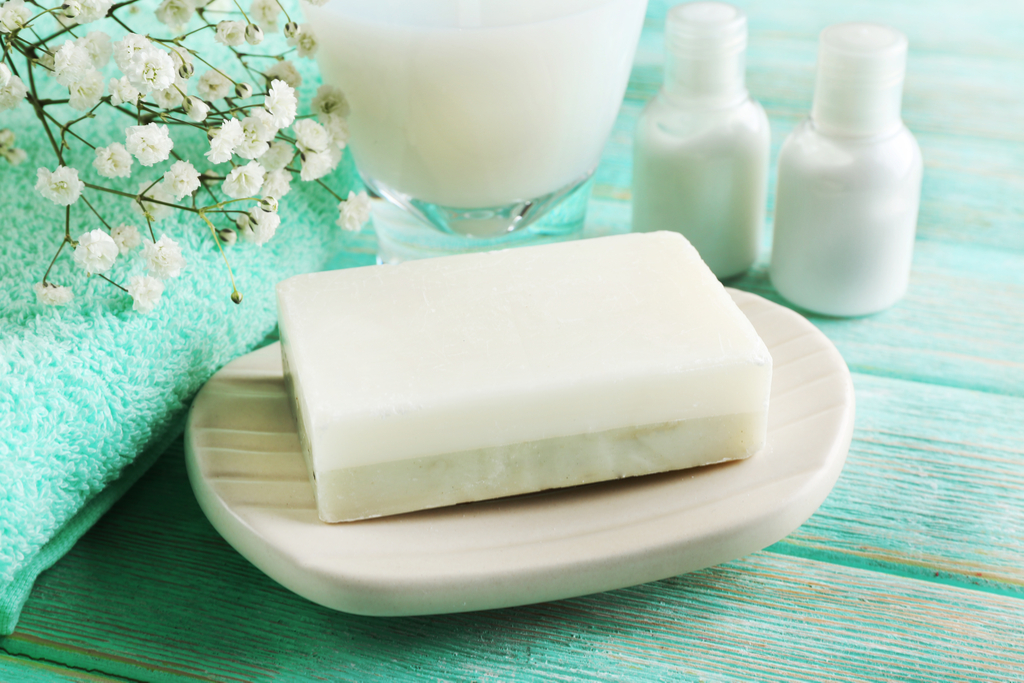
No matter how careful you are, a slippery bar of soap must be kept somewhere where it won’t slide its way onto the floor when it’s not being used. But according to experts, how you store your suds can also create a bit of a health risk.
“Soap dishes may keep your bar from moving around, but they’re often not drained properly, which makes them a breeding ground for bacteria,” Kristina Hendija, medical advisor at Beardoholic, tells Best Life. “What’s worse is that microorganisms will even start growing on the soap that’s in the dish. As a result, this makes you vulnerable to bacterial skin infections.”
2
Bar soaps
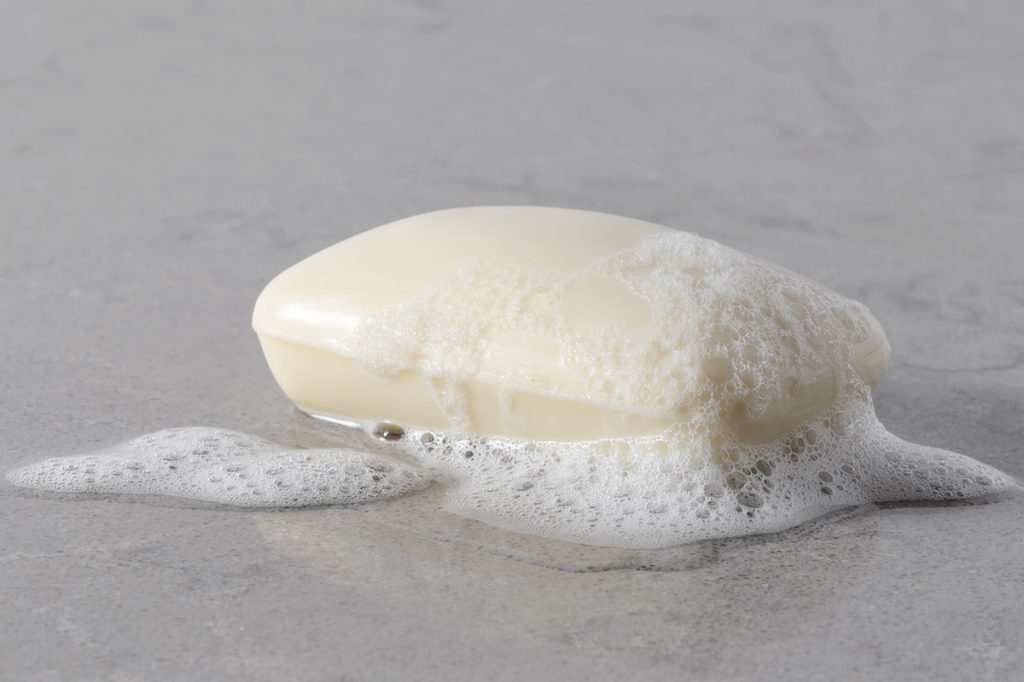
No matter how you’re currently storing your soap, it’s still probably one of the few products that most people will use every time they step into the shower. After all, the point of bathing is to clean yourself off. But if you’re stuck on using the type of soap you can hold on to, it might be creating an entirely different issue than when it’s left to stew in a dish.
“In general, bar soaps are very harsh to the skin due to their high pH and sodium lauryl sulfate content,” Sony Sherpa, MD, a holistic physician with Nature’s Rise, tells Best Life. “This detergent strips the body’s natural oils, leaving it clean but extremely dry. People with dry and sensitive skin should especially think twice about using them.”
There’s also an issue of how unsanitary they can be, even in the best storage conditions. “Aside from dehydrating the skin, bar soaps may also harbor bacteria, viruses, fungi, and other disease-causing germs,” Sherpa adds. “And at the very least, they’re a safety hazard when unintentionally left on the bathroom floor and may cause accidents.”
READ THIS NEXT: If You Do This in the Shower, Stop Immediately, Doctor Says.
3
Electric razors
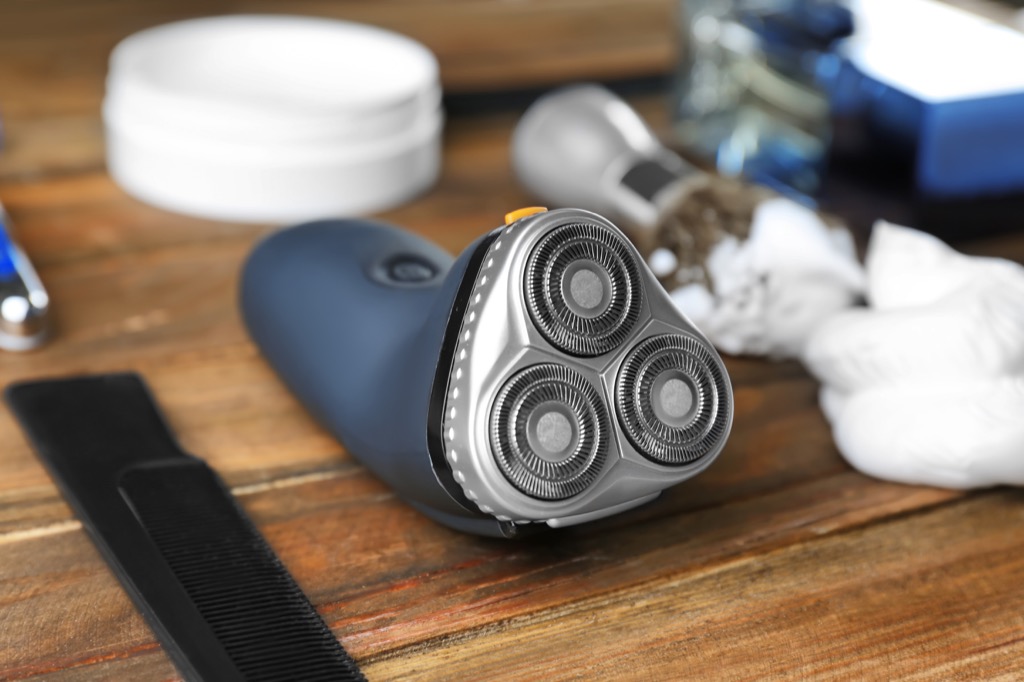
Shower time involves much more than just soaping up and rinsing off. It can also include important grooming practices, such as skin care routines or shaving. But experts say that if you’re planning on touching up your facial hair, it might be best to stick to a simple blade rather than a sophisticated device.
“Electric razors perform far better when shaving dry hair, which is firmer and more resistant to the power of a rotating blade,” says Jennie Miller, co-founder of online health and wellness publication Midss.org. “It’s best to just buzz your beard quickly before jumping into the shower. This provides easy clean-ups because hair clippings that will still be around your neck and chest will be washed away when you rinse off.”
4
Oily bathing products
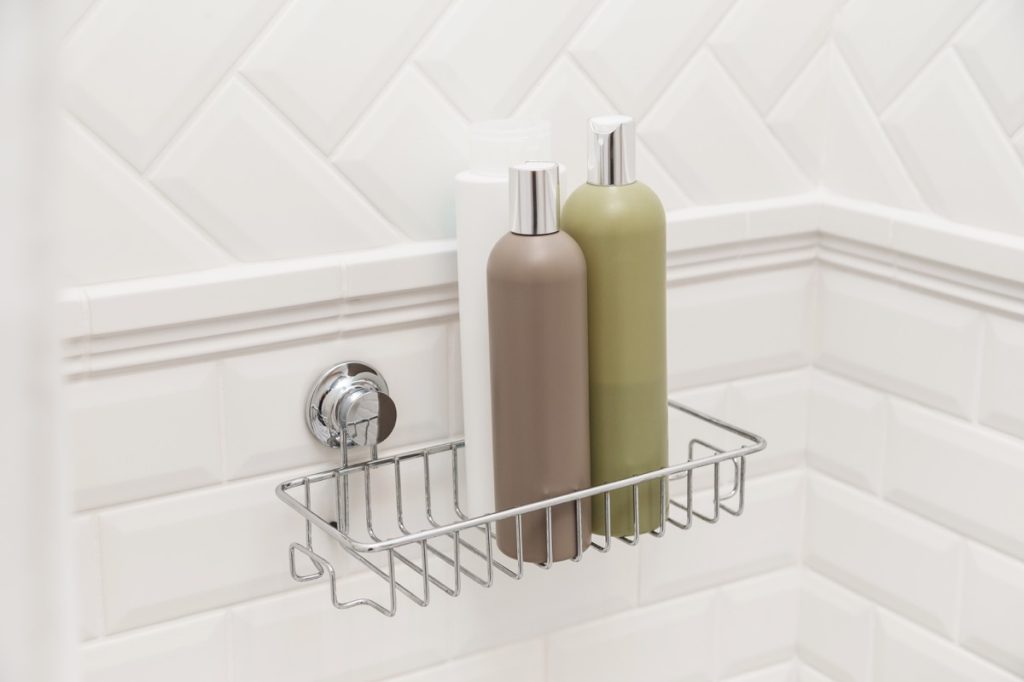
Just as each person’s shower routine is different, so is the number and kind of products they use while cleaning up. Some opt for certain types of exfoliating scrubs, while others splurge on special shampoos and conditioners. But if you want to avoid a hygiene hazard, experts say you should steer clear of certain items that could create dangerous conditions.
“I might sound obvious, but it’s best to avoid using oily products in the shower,” Hendija advises. “The product can accidentally spill on the shower floor or your bathroom tiles, making them slippery and obviously increasing your chances of slipping. Even if you consider yourself to be a careful person, is it worth potentially creating a fall hazard and breaking a bone? Better to be safe than sorry and opt for a different item.”
5
Shower gels
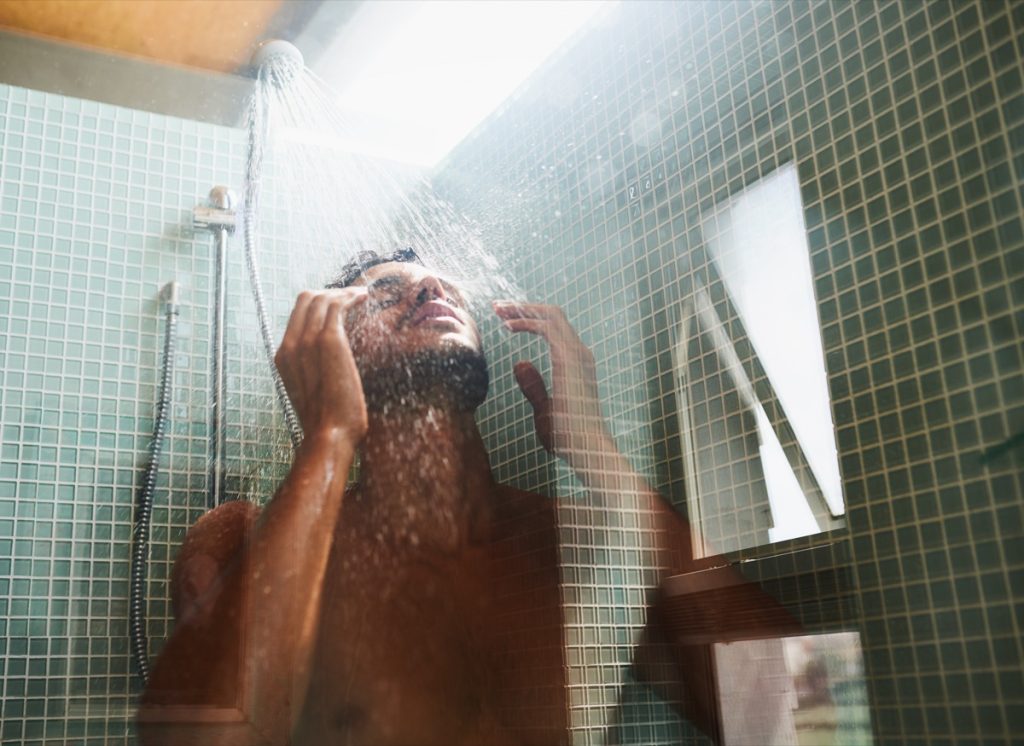
Even though bar soap may have its fair share of issues, the alternatives can also create a messy situation. In fact, one expert warns that you might want to do a little research before committing to a new body-cleaning product.
“Shower gels can create hazards in the showers with hard water,” Nancy Mitchell, a registered nurse with 37 years of experience and a contributing writer at Assisted Living, tells Best Life. “That’s because they don’t usually lather in hard water, which is why you might notice your skin feels so slimy after use.”
And even if you’re avoiding conspicuously slippery shower products, you might not realize how dangerous some shower gels can be. “Most of these products also contain petroleum as a lubricant, which in itself is quite slippery. If these gels spill onto your shower floor, it could also create a slippery hazard both for yourself and the person showering after you,” she says. “This is especially dangerous for seniors who live alone because a fall could leave them badly injured—not to mention the fact that they’d be left unattended for hours on end.”
For more life advice delivered straight to your inbox, sign up for our daily newsletter.
6
Loofahs
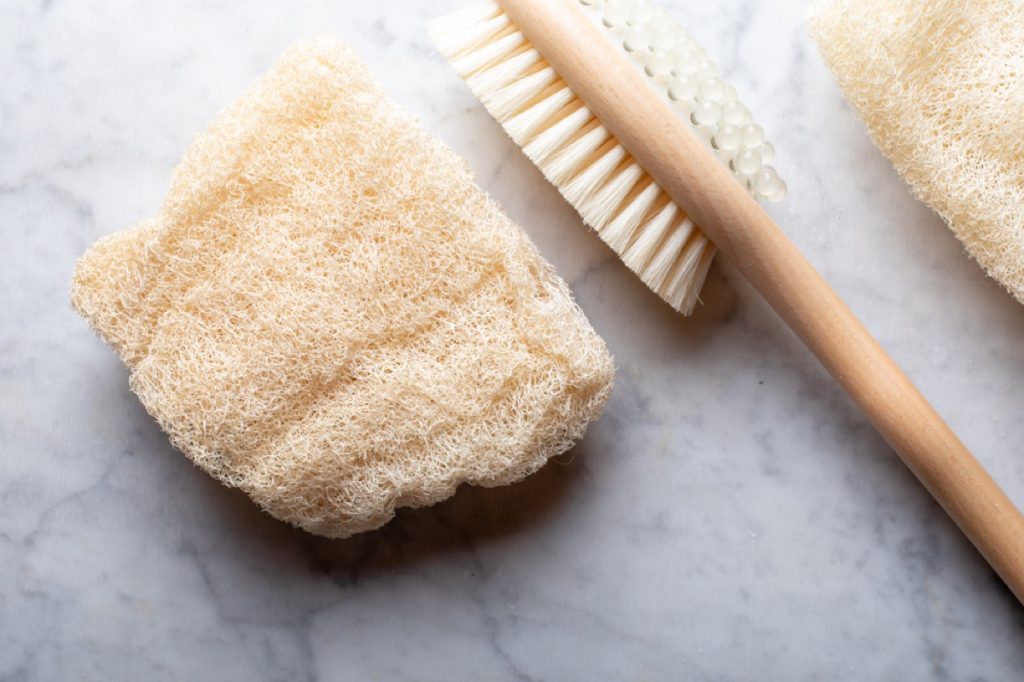
When it comes to feeling really clean, it’s hard to top a loofah. The oversized scrubbers make it easy to buff out your skin, leaving it feeling silky smooth. Unfortunately, however, they can also quickly become a pretty gross part of your shower experience.
“Mold can harbor in loofahs and sponges alike, as well as germs, dead skin cells, and remnants of dirt, oil, and grime that we scrub off our bodies,” Gretchen W. Frieling, MD, a board-certified Boston-based dermatopathologist, told Real Simple. “This can cause infection if washing an open cut, trap bacteria inside your pores, and prevent you from really cleansing yourself from germs.”
In terms of lathering up, Frieling noted it’s best to take the matter into your own hands—literally. “Our hands are the most accessible tools,” she said. “They’re easy to clean and, if washed properly before lathering your body with your preferred bath product, you’re at less risk than if you were using sponges or loofahs.”